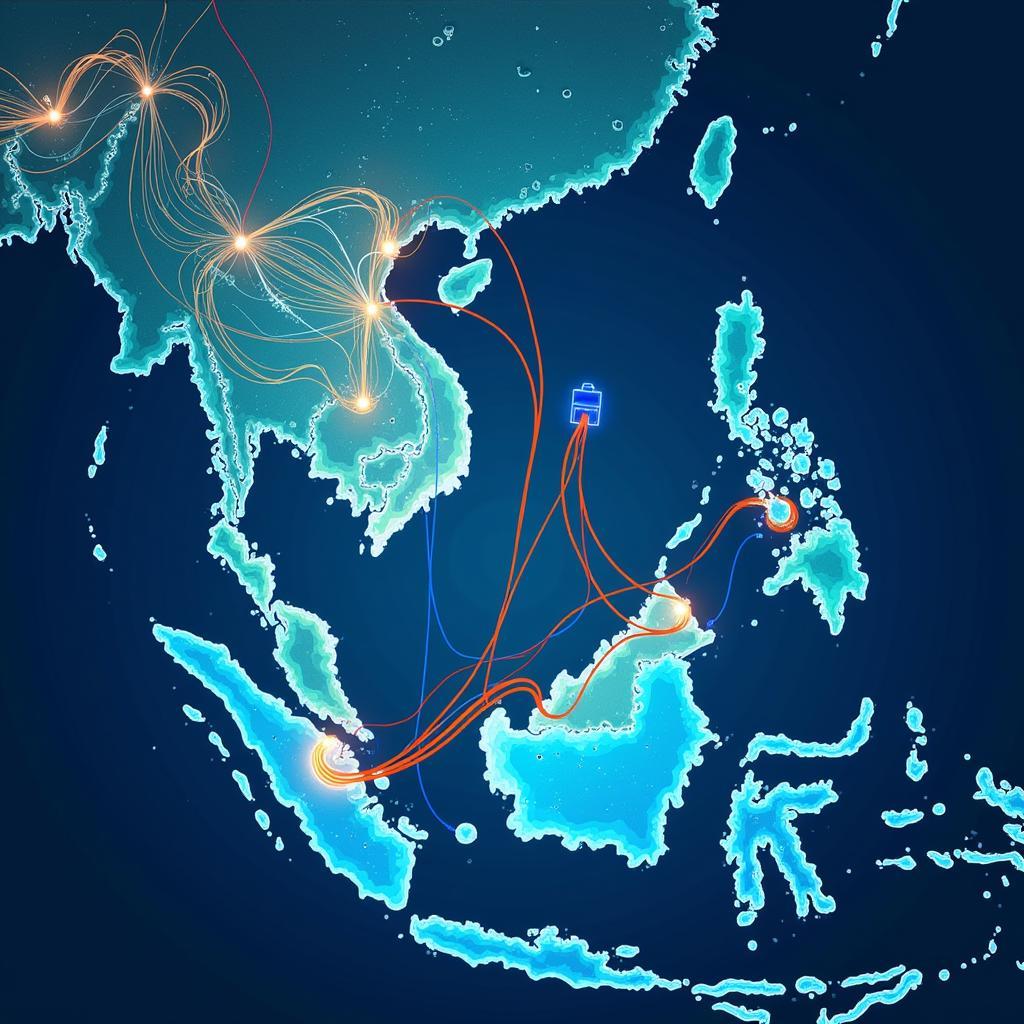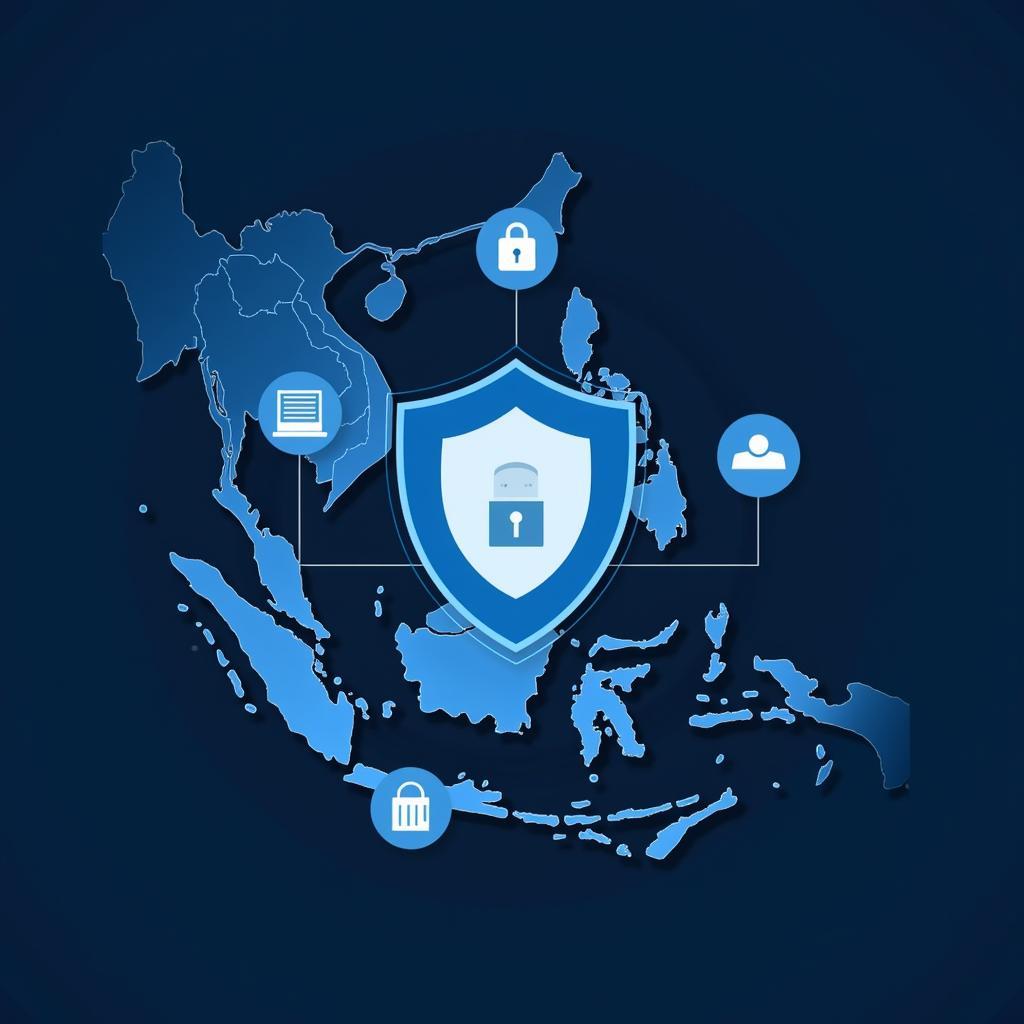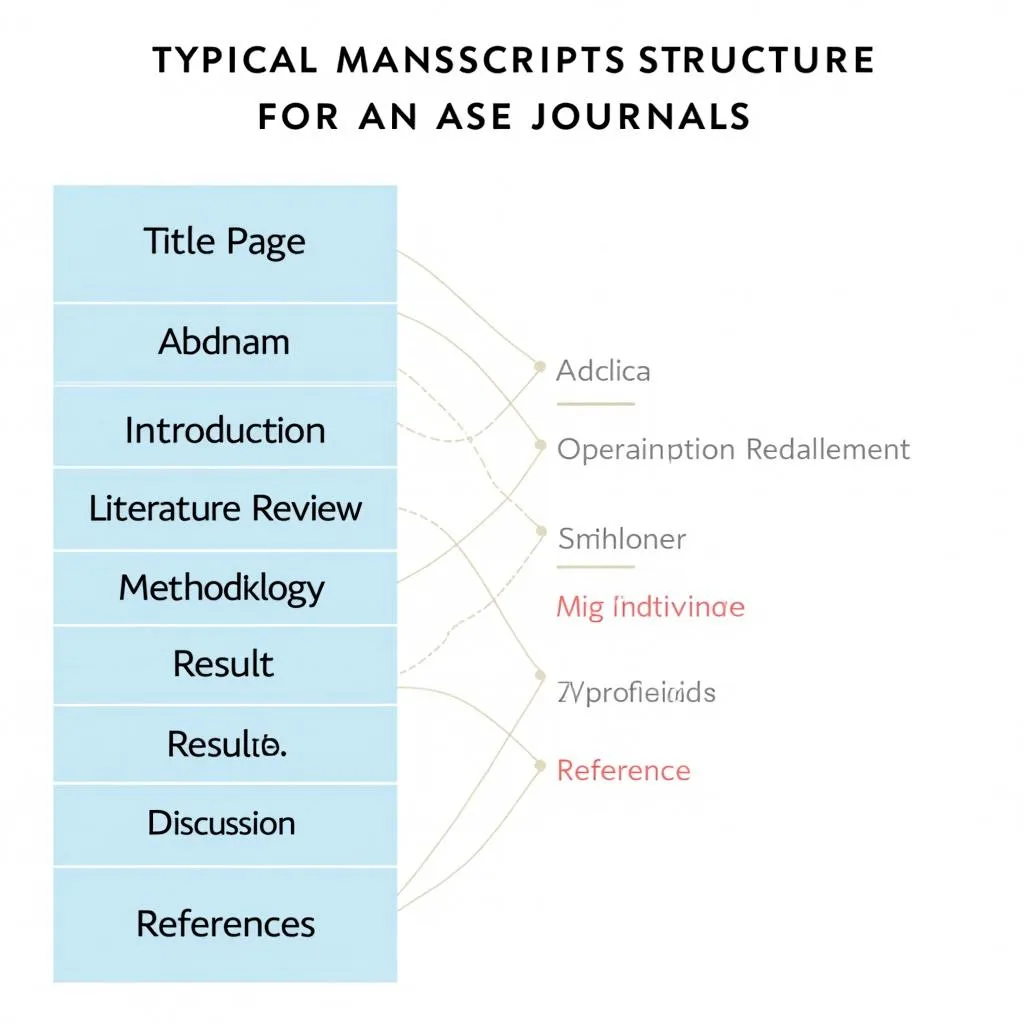The digital revolution is transforming the world, and ASEAN is no exception. Advancing Asean In The Digital Age is not just a goal; it’s a necessity. This transformation presents both opportunities and challenges for the region, impacting everything from economic growth to social development. We’ll explore how ASEAN is navigating this digital landscape, harnessing its potential to foster greater connectivity, innovation, and prosperity.
ASEAN’s digital economy is booming, driven by a young and increasingly tech-savvy population. E-commerce is flourishing, startups are disrupting traditional industries, and digital technologies are creating new opportunities for businesses and individuals alike. However, this rapid growth also presents challenges, including the need to bridge the digital divide, ensure cybersecurity, and develop the necessary digital skills and infrastructure.
Harnessing the Power of Digital Technologies for ASEAN Growth
The digital age presents a golden opportunity for ASEAN to leapfrog traditional development pathways and achieve accelerated economic growth. From fintech to agritech, digital technologies are transforming industries across the region. Governments, businesses, and individuals must work together to create an enabling environment that fosters innovation and empowers citizens to participate fully in the digital economy. For instance, initiatives like the ASEAN Digital Masterplan 2025 provide a strategic framework for regional cooperation in developing a vibrant and inclusive digital ecosystem. The ASE 2019 Meeting further solidified commitments to digital collaboration.
The Importance of Digital Literacy and Skills Development
A key pillar of advancing ASEAN in the digital age is investing in human capital. Equipping the next generation with the necessary digital skills is crucial for ensuring that the region can fully capitalize on the opportunities presented by the digital revolution. This involves not only technical skills but also critical thinking, problem-solving, and creativity, essential for thriving in the rapidly evolving digital landscape.
Bridging the Digital Divide: Ensuring Inclusive Growth
While the digital economy offers immense potential, it’s vital to ensure that its benefits are shared by all. Bridging the digital divide within and between ASEAN member states is crucial for promoting inclusive growth and ensuring that no one is left behind. This requires targeted interventions to improve internet access, affordability, and digital literacy, especially in rural and underserved communities.
Embracing Innovation and Entrepreneurship in the Digital Economy
ASEAN is a hotbed of innovation, with a vibrant startup ecosystem that is driving economic growth and creating new jobs. Governments are increasingly recognizing the importance of fostering entrepreneurship and providing support for startups. Initiatives such as incubators, accelerators, and funding programs are helping to nurture the next generation of digital entrepreneurs. The ASE Ident initiative is a key example of how ASEAN fosters collaboration and innovation.
Building a Robust Digital Infrastructure
A strong digital infrastructure is the backbone of a thriving digital economy. This includes reliable internet access, secure data centers, and robust cybersecurity measures. ASEAN member states are working together to invest in and develop the necessary infrastructure to support the growth of the digital economy. The ACMF Meeting Cebu ASEAN Finance Meeting underscored the importance of digital infrastructure development.
 ASEAN Digital Infrastructure Development
ASEAN Digital Infrastructure Development
“The digital revolution presents an unprecedented opportunity for ASEAN. By embracing innovation and investing in human capital, we can unlock the full potential of the digital economy and create a more prosperous and inclusive future for all,” says Dr. Anya Vijaya, a leading economist specializing in Southeast Asian digital economies.
Navigating the Challenges of the Digital Age
While the digital age offers immense opportunities, it also presents several challenges that ASEAN must address. Cybersecurity threats are becoming increasingly sophisticated, and data privacy concerns are growing. It’s crucial for the region to develop robust cybersecurity frameworks and regulations to protect businesses and individuals from these threats. The ASEAN AMRI contributes to shaping regional media and information landscape, helping to address these challenges.
Ensuring Data Privacy and Security in a Connected World
In a world where data is the new currency, protecting personal information is more important than ever. ASEAN member states are working together to develop data privacy regulations that are aligned with international standards while also taking into account the specific needs and contexts of the region.
 ASEAN Data Privacy and Security
ASEAN Data Privacy and Security
“ASEAN must prioritize cybersecurity and data privacy to build trust and confidence in the digital economy. Strong regulations and effective enforcement are essential for protecting businesses and individuals from cyber threats,” states Mr. Kenji Tanaka, cybersecurity expert and consultant for various ASEAN governments.
In conclusion, advancing ASEAN in the digital age requires a multi-pronged approach. By investing in digital infrastructure, developing digital skills, fostering innovation, and addressing the challenges of cybersecurity and data privacy, ASEAN can unlock the full potential of the digital economy and create a more prosperous and inclusive future for all. This digital transformation will be key to the region’s continued growth and development.
FAQ
- What is the ASEAN Digital Masterplan 2025?
- How is ASEAN addressing the digital divide?
- What are the key challenges for ASEAN in the digital age?
- How is ASEAN promoting innovation in the digital economy?
- What are the benefits of a robust digital infrastructure?
- How is ASEAN addressing cybersecurity threats?
- What are ASEAN’s data privacy regulations?
For further information, explore related articles on ASE Annual Meeting 2020.
Need support? Contact us 24/7: Phone: 0369020373, Email: aseanmediadirectory@gmail.com or visit us at Ngoc Lien Village, Hiep Hoa, Bac Giang, Vietnam.


